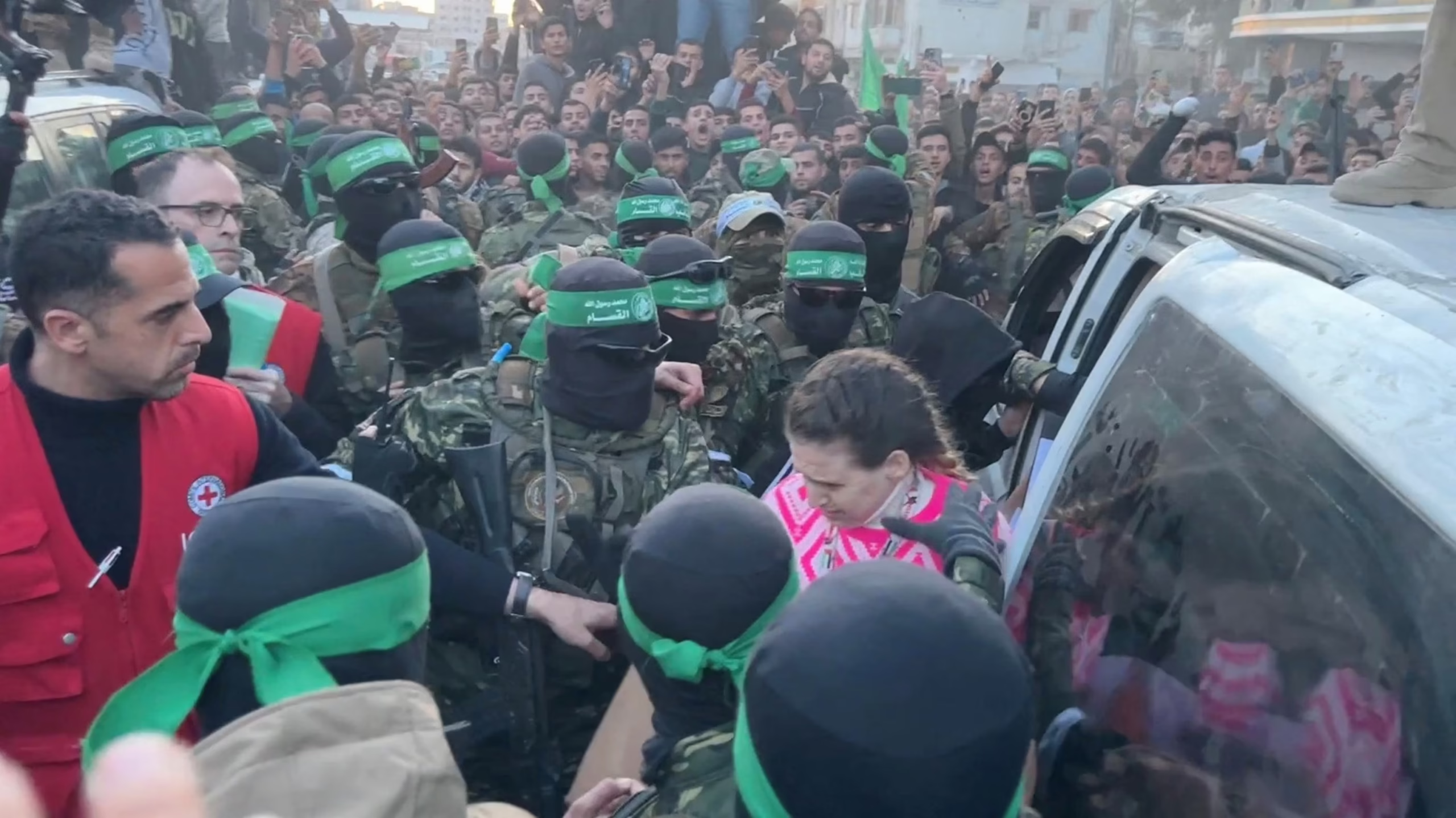The first three hostages released from Gaza have arrived in Israel, marking a hopeful moment as the fragile ceasefire between Israel and Hamas took effect. The three women were greeted by their mothers after a tense and emotional journey.
Israeli media showed footage of the women walking to Red Cross vehicles as they moved through Gaza City. The convoy, guarded by Hamas fighters in green headbands, faced a chaotic crowd that grew into the thousands, all eager for any glimpse of the hostages. There were no immediate updates on the women’s conditions, as they were taken for medical assessments, though President Biden later confirmed they appeared to be in good health.
In Tel Aviv, thousands gathered to watch the unfolding events on large screens, cheering as they saw the hostages arrive. Many of them had spent months in the square, demanding a ceasefire and an end to the ongoing violence.
The ceasefire is expected to bring an initial six weeks of calm, with hopes high for the release of more hostages and a potential end to the devastating 15-month conflict. However, a last-minute delay by Hamas pushed back the truce’s start by nearly three hours, underscoring how fragile the agreement is.
Even before the ceasefire officially began, celebrations erupted, and some Palestinians began to return to their homes.
Later on Sunday, 90 Palestinian prisoners are expected to be released as part of the deal. In the West Bank, families celebrated with honking cars and waving Palestinian flags.
The ceasefire, which started at 11:15 a.m. local time, is seen as a first step toward ending the war and bringing back the nearly 100 hostages taken during Hamas’ October 7 attack.
Among the first hostages released were Romi Gonen, Emily Damari, and Doron Steinbrecher. Gonen had been taken from the Nova music festival, while Damari and Steinbrecher were abducted from Kibbutz Kfar Aza. Damari holds dual Israeli-British citizenship.
In the hours before the ceasefire, Israeli airstrikes killed at least 26 people, though it was unclear whether they were fighters or civilians. The Israeli military had warned people to stay away from the area as forces retreated into Gaza’s buffer zones.
Meanwhile, Israel’s national security minister, Itamar Ben-Gvir, announced that his political faction was leaving the government in protest over the ceasefire. While this weakens Prime Minister Netanyahu’s coalition, it does not appear to threaten the ceasefire itself.




